Raising Chickens for Eggs: A getting started guide
Raising chickens for eggs can save you money and really be a lot of fun. But there are a few basics to understand before starting your flock so you can raise healthy chickens and gather sturdy, nutrient-packed eggs each day. Get started here!
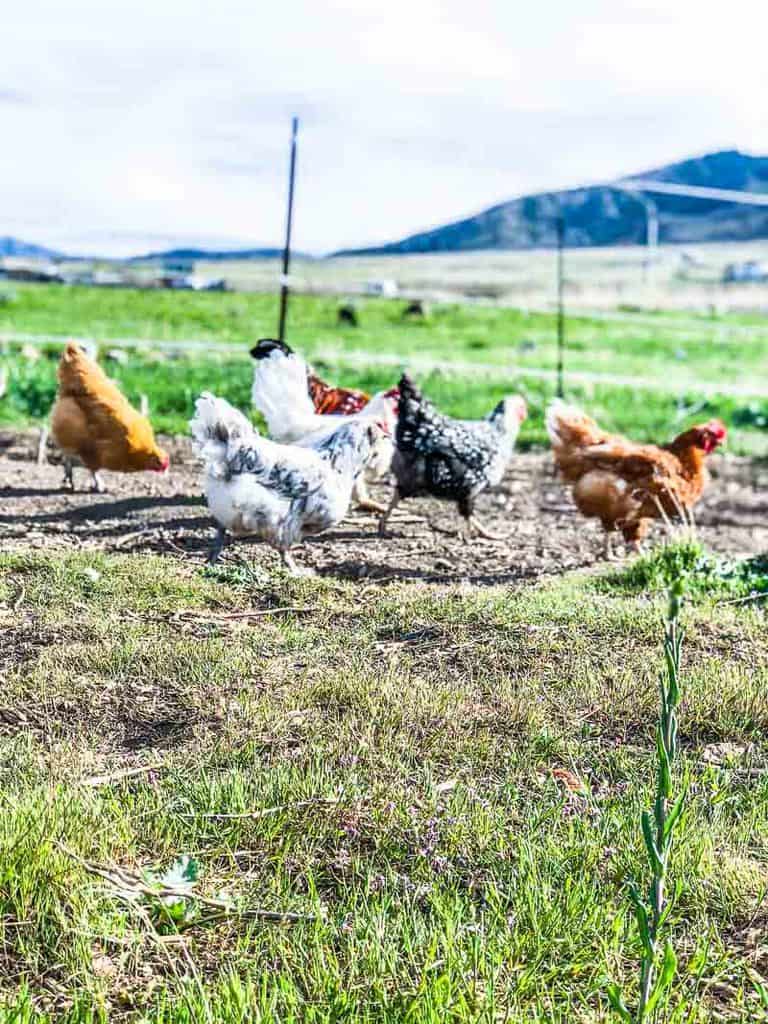
What breed is best when I’m raising chickens for eggs?
The breed of laying hen you get will determine what color eggs the hen lays and how often. Here are a few of the most common breeds and their characteristics:
- Sex-linked hens are great for starting out because you are guaranteed a hen {female} depending on the color. They lay very consistently and lay large brown eggs.
- Leghorns are very prolific layers and lay large white eggs. They can be a little neurotic and peck at other hens but if you only have a few in your flock they are usually not a problem.
- Easter Egger Hens (Americana) lay blue or green eggs and are a fun addition to any backyard flock. They lay 4-5 eggs a week that are a nice medium size.
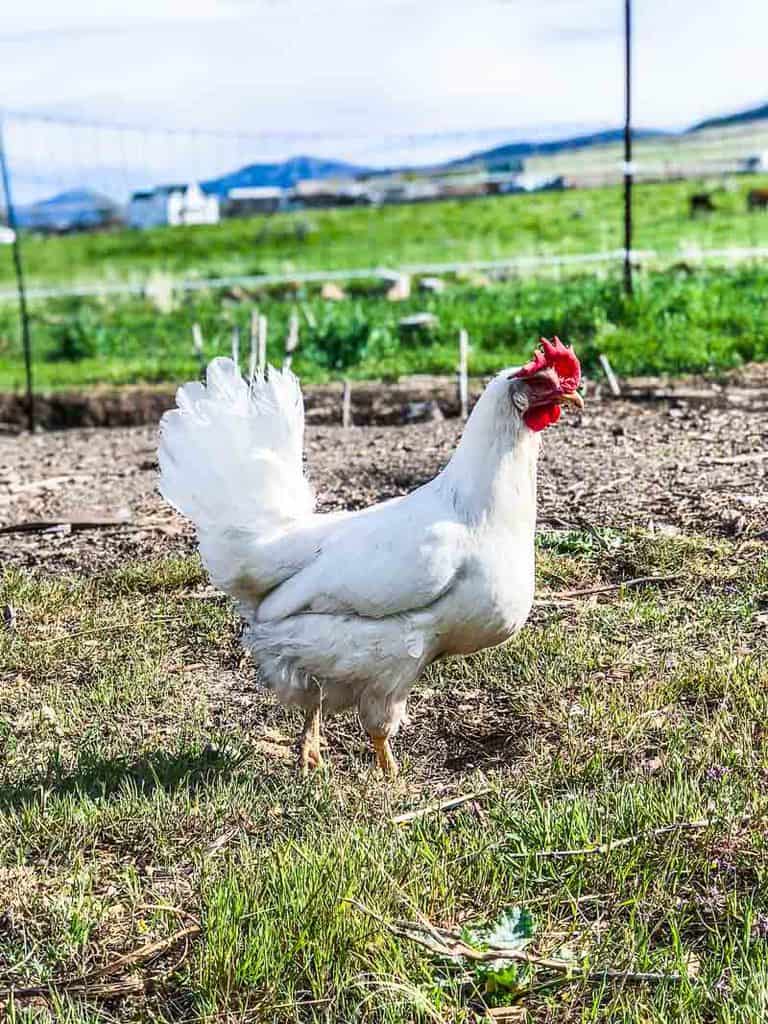
When do laying hens start laying eggs?
This is one of the most common questions I get about raising chickens for eggs. Laying hens lay when they are 6-8 months old, some of the more prolific breeds, like Leghorns, can lay sooner but 6 months is average.
When hens start laying they might lay in strange places and will need some help finding the laying box. I always set false eggs in the boxes to encourage young hens to lay in the right spot, they catch on quickly if the nest boxes are set up correctly.
Why do the eggs look this way?
Most of the time, all hens lay nice, smooth eggs. But occasionally, a hen will lay an egg with a rough texture or small bumps on it. These are simply calcium deposits and are totally normal. Along those lines, it’s very normal for a hen to lay an egg without a shell every once in a while, especially if she is coming off of a laying break or if she is a new layer. If you are consistently getting strange egg textures or eggs with no shells, you’ll need to look into health and nutrition further.
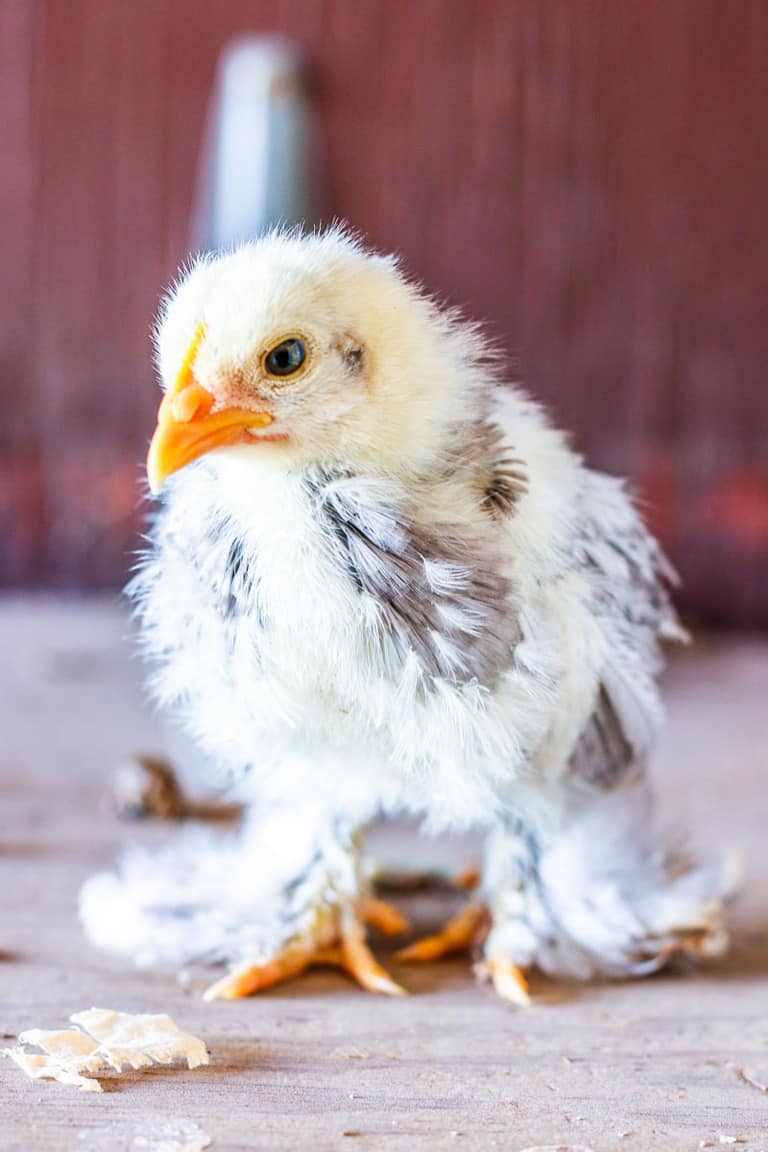
You may also go out to the coop one day to discover a very small egg, these are also totally normal in hens that are new layers. They are called fairy eggs and usually are just egg whites. I love finding these cute little surprises!
How can I keep my laying hens healthy?
The most important thing to do when you’re raising chickens for eggs is to keep them safe from predators, they are not very good at protecting themselves or getting out of danger. It’s important to make sure your coop is protected and that your yard is protected if you are going to let them roam.
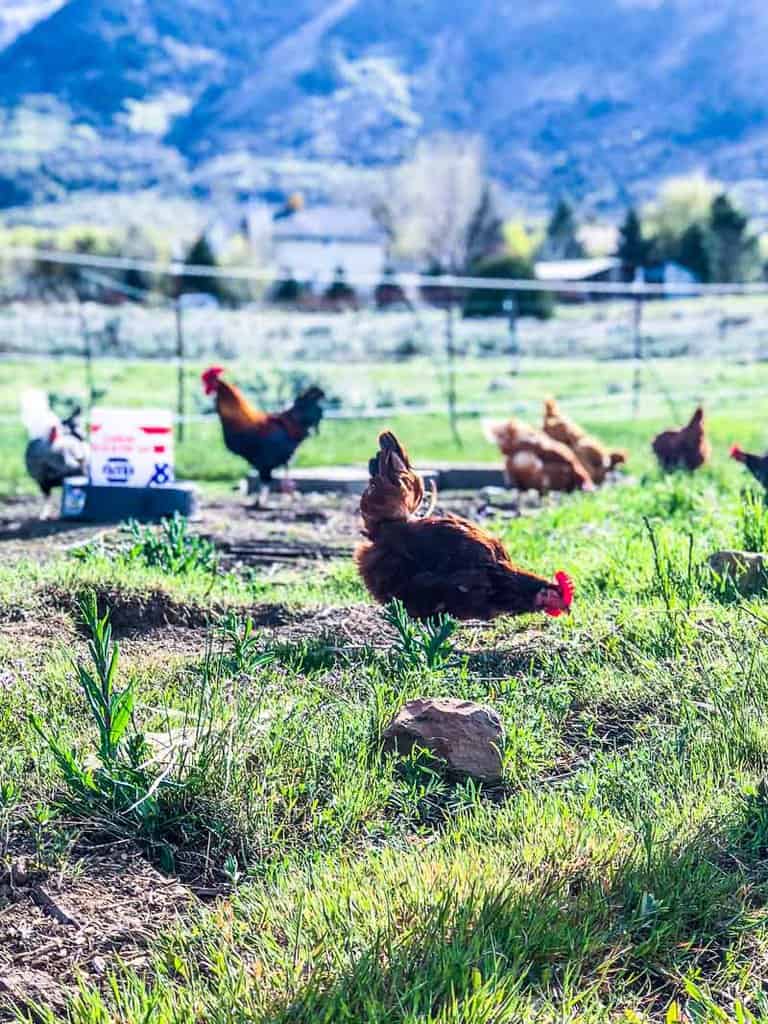
You may need to learn a little bit about chicken health and nutrition, understanding a little bit about how their bodies work and what diseases and pests they are susceptible too will save you a lot of time and heartache in the future. Providing chickens with a dust bath and adding a little bit of food grade diatomaceous earth will take care of most external parasites chickens can get.
Do I need a rooster when I’m raising chickens for eggs?
Having a rooster for your laying hens is not a necessity and many cities don’t allow roosters because of their noise. If you can have a rooster and would like one, it’s important to make sure he is well behaved. Roosters can be dangerous if they are mean, especially if you have children. I recommend purchasing an older rooster with a proven behavior record, they are usually much better than young roosters. And, if you end up with a young rooster down the road, the older rooster will teach him how to behave like a gentleman.
Remember: a chicken doesn’t need a rooster to make an egg. But she will need a rooster if you want that egg fertilized to make a chick.
I mean, do we need a birds and the bees chat? ‘Cause we can go there…
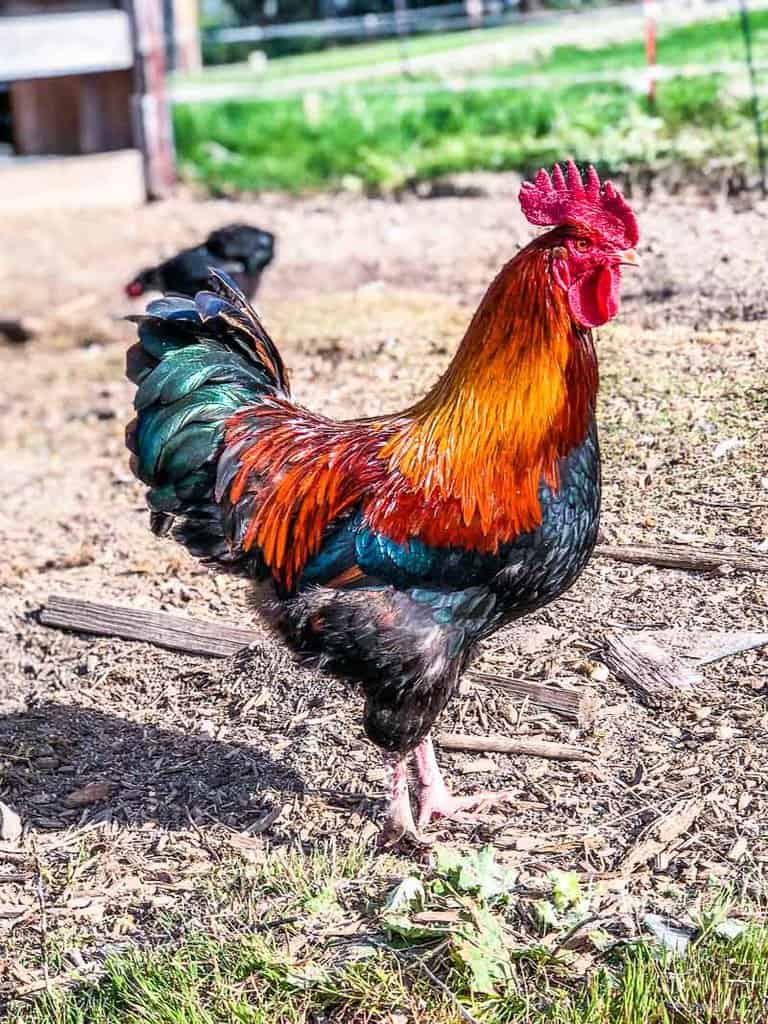
I hope this list was helpful for you as you consider raising chickens for eggs. They have been a fun addition to my farm and I love getting colorful, fresh eggs daily. So don’t be afraid to get started–get one or two and see how it goes then grow on from there! Here’s to those bright orange yolks and fresh eggs on your table every day!
Looking for ways to use those delicious eggs? Try these recipes!
Green Onion and Bacon Quiche
Baked Ham and Egg Cups
Strawberry Banana Bread








About the Author
Rachel Ballard, RN, BSN brings more than 20 years of professional nursing expertise to Feast and Farm. With a love for nutrient dense foods that support wellness, she works to distill complex health information and current trends into recipes that fuel the best version of yourself. Read more about Rachel here.